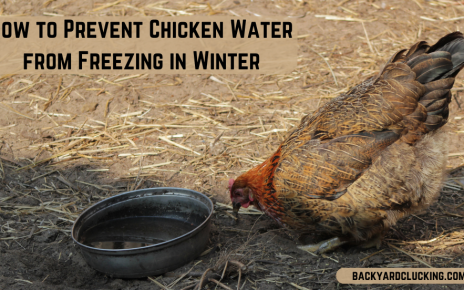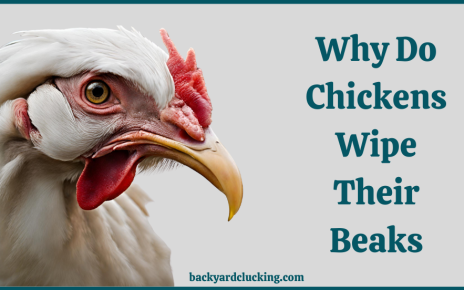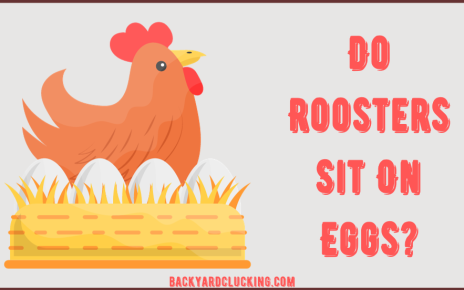Have you ever been out in your backyard and suddenly heard a loud squawking noise? It might have sounded like one of your beloved chickens being attacked, but you weren’t sure who or what could be responsible. The culprit may be none other than the sneakiest animal around – that’s right, we’re talking about raccoons! Raccoons pose a growing threat to chicken populations worldwide, so it’s no wonder some families are worried their coop is at risk.
But if these crafty creatures primarily come out only at night, is there any need to worry about them targeting chickens during the day? In this blog post, we’ll explore whether or not raccoons are likely to attack chickens while the sun is still up. Read on for all of the answers and even more helpful advice!
Do Raccoons Attack Chickens During The Day?
The answer to the above question is yes; raccoons can attack chickens during the day. However, it is rare and isn’t usually necessary for your safety or the security of your flock. Raccoons are nocturnal animals that love to come out in the dark, so they tend to rest during the day.
That being said, there are certain conditions under which they may be more likely to come out during the daylight hours. For example, poor weather may force raccoons to seek shelter in their chicken coop or look for food if other sources are scarce.
To better understand the likelihood of raccoons attacking chickens during the day, let’s look closely at raccoon habits and discuss possible mitigating factors.
Related post: Will Skunks Kill Chickens?
Raccoon Habits
Raccoons are mainly nocturnal animals, meaning they are most active during nighttime. They come out after sunset searching for food, and foraging and hunting activities usually continue until the early morning hours. Raccoons are omnivorous and opportunistic feeders, which is why they find chickens to be a tempting target. Combining a potentially easy meal and an enclosed area like a chicken coop makes the prospect even more appealing to these masked bandits.
Daytime Attacks: Factors to Consider
While raccoons are more likely to attack during the night, daytime incidents cannot be entirely ruled out. Some factors may encourage a raccoon to venture out and attack during daylight:
1. Seasonality: During the spring and summer months, when days are longer, raccoons might extend their foraging activities to daytime hours. They require more energy to raise their young and deal with heightened resource competition.
2. Environmental Changes: Urbanization, destruction of natural habitats, or changes in the balance of the local ecosystem can disrupt raccoons’ normal schedule and force them to look for food during the day.
3. Availability of Food: If food is scarce, raccoons may become bolder and expand their hunting range to find sustenance, increasing the likelihood of daytime attacks.
Protective Measures
Fortunately, chicken owners can implement a few precautions to deter raccoons and protect their birds:
1. Secure the Coop: Add sturdy latches to chicken coop doors and entry points. Raccoons are known for dexterity, but a well-secured coop can dissuade a would-be intruder.
2. Use Electric Fencing: Electric fencing around the perimeter of the chicken enclosure can provide a strong deterrent for raccoons attempting to enter.
3. Cleanliness: Remove any sources of food that might attract raccoons. Regularly clean the area around the coop to eliminate tempting smells.
4. Lighting: Install motion-activated lights near the coop. They can help deter raccoons by illuminating the area and making it less comfortable for them to approach.
Raccoon-Inflicted Injuries and Treatment
If a raccoon does manage to attack your chickens, it’s essential to assess the damage and treat any injured birds as quickly as possible. Raccoons primarily kill by biting the head or neck, and these injuries can be severe or even fatal.
If a chicken is injured but still alive, take the following steps:
1. Isolate the Bird: Separate the injured chicken from the rest of the flock to minimize stress and prevent further harm.
2. Clean the Wound: Gently clean any wounds with warm water and mild soap. Disinfect the area using an antiseptic solution like Betadine before applying a topical antibiotic ointment.
3. Monitor the Healing Process: Check the wound daily for signs of infection like redness, swelling, or pus. Consult a veterinarian if necessary.
Summary
In summary, while raccoons are less likely to attack chickens during the day, taking precautions is still essential. You can help keep your flock safe from these crafty critters with the proper measures.
To further protect your chickens and increase their chances of survival, learning about raccoon behavior and habits is also a good idea. Knowing when and where they’re most active can help you take the necessary steps to prevent future attacks. You can keep your chickens safe from these crafty bandits. With the right information and preventive measures
If you need help with raccoons or other wild animals on your property, consider consulting a professional nuisance animal removal specialist. A certified wildlife expert should be able to assess the situation and devise an effective plan to keep your chickens safe. With these essential steps, you can ensure the security and longevity of your flock.




